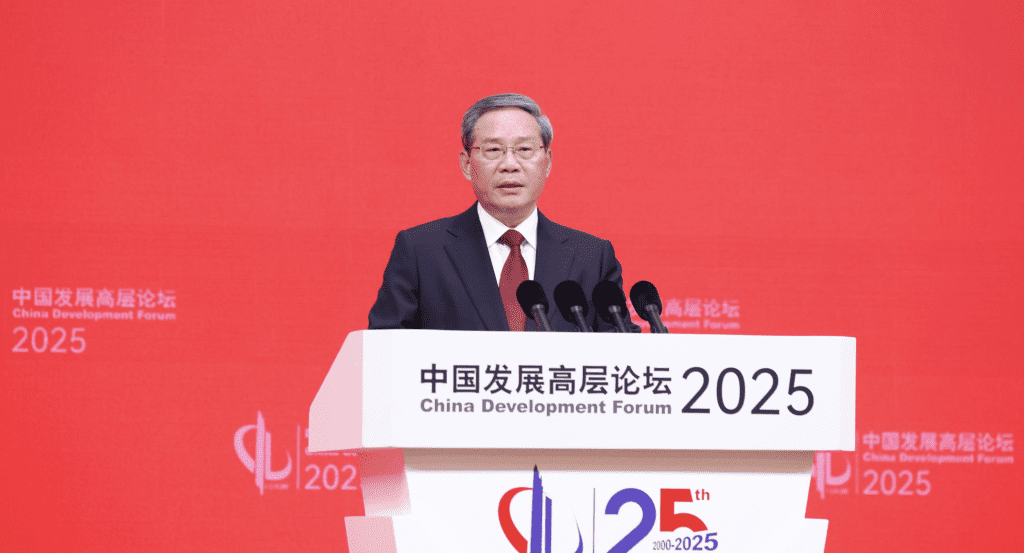China Seeks Foreign Investment Amid Tariff War with U.S.
China has reassured top executives from American and European companies, including Apple, Qualcomm, Mastercard, Pfizer, and AstraZeneca, that its market remains open for business despite rising trade tensions with the United States.
Chinese Vice Premier He Lifeng delivered this message during a two-day China Development Forum in Beijing, where he met with CEOs like Tim Cook (Apple), Cristiano Amon (Qualcomm), and Pascal Soriot (AstraZeneca). U.S. Senator Steve Daines (R-Mont.) also attended the event.
China’s Commitment to Foreign Investment
He Lifeng emphasized that China is committed to:
- Expanding high-level market openness
- Improving the business environment for foreign investors
- Strengthening economic and trade ties with the U.S. and multinational firms
DON’T MISS THIS:Goodluck Jonathan Wins 2025 Founder’s Sunhak Peace Award
However, foreign investment in China has slowed due to:
- Weaker economic growth compared to past decades
- A major real estate crisis in 2023
- Lower consumer spending among Chinese citizens
U.S.-China Trade War Heats Up
Trump’s Tariff Hike
Trade relations between the U.S. and China worsened after President Donald Trump doubled tariffs on Chinese imports to 20% on March 4. This move aimed to reduce the U.S. trade deficit, which reached $295.4 billion in 2024, according to the U.S. Census Bureau.
China’s Retaliation
In response, China imposed 10%-15% tariffs on 740 U.S. goods, mainly agricultural products.
The White House is considering additional “reciprocal tariffs” next month, which could further increase duties on Chinese goods.
China’s Warning Against Economic “Decoupling”
At the China Development Forum, Chinese Premier Li Qiang cautioned against global economic fragmentation, stating that:
“Decoupling and breaking supply chains would only deepen crises.”
- Li stressed that China would:
Continue opening its economy to foreign investors
Introduce new policies to stabilize growth if necessary
Push for U.S.-China cooperation, emphasizing their shared economic interests
A Warning Against Protectionism
Li also warned that:
“If the world returns to the law of the jungle, it will be a step backward in history and a tragedy for humanity.”
Trump’s Push for a Meeting with Xi Jinping
Senator Steve Daines, a key Trump ally, met with Premier Li Qiang to discuss a possible meeting between Trump and Chinese President Xi Jinping.
Daines also conveyed Trump’s demand for China to take decisive action against the flow of fentanyl precursors into the U.S.
In a post on X (formerly Twitter), Daines noted that:
U.S. CEOs remain committed to doing business in China. However, they face increasing operational challenges due to trade tensions
Conclusion
China is making a strategic push to maintain foreign investment while preparing for potential economic shocks from escalating trade disputes.
As Trump’s tariffs increase and China retaliates, global businesses may face new economic challenges, making U.S.-China relations a key focus for 2025.
What do you think about the U.S.-China trade war? Should businesses continue investing in China? Share your thoughts in the comments!




















